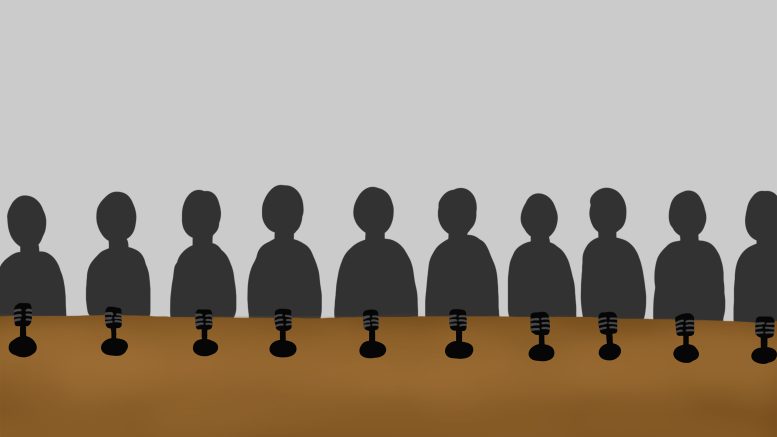The misinformation and disinformation that spreads as often as it does within the sphere of student governance draws from the juxtaposition of two age-old sayings — “no news is good news,” but “good news doesn’t sell newspapers.”
Let’s face it, controversies make for great conversation starters and sensational headlines.
To see this in practice, look no further than the recent University of Manitoba Students’ Union annual general election.
A flood of complaints, an unprecedented situation for the presidential vote and the dissemination of half-truths and mistruths about grievances that were in the public domain well before ad hominem attacks were launched against the Chief Returning Officer all serve as reminders of a troubling trend — the growing lack of distinction between political positions of power and the individuals serving in them.
This does not mean that people are not entitled to their own opinions. After all, one of the foundational principles of a democratic institution is the guarantee that different views and perspectives are welcome for discussion, debate and deliberation in a reasonable and responsible manner.
Yet, restraint has been pushed to the side and replaced with an echo chamber where harsh, demeaning criticisms are levied against high-level figures serving in student government, in public spaces and behind closed doors.
Leaders are being confined to their positions as justification for these rebukes, with little to no regard for their personal lives outside of politics. The unspoken expectation is to tolerate the onslaught of attacks because it’s part and parcel of the job.
Warranted or not, it is important to ask whether the comments and critiques one makes are directed at a student leader’s policies or the individual in that position.
As an elected student serving as president of a faculty association, I am familiar with the rigours and stresses that come with student governance. From personal experiences and through conversations with other students in leadership positions at various levels, I have noticed that the issue of ad hominem criticism is becoming widespread.
I am well aware that criticism is built into the fabric of leadership positions and governance structures as a whole, be it the UMSU board of directors or the House of Commons.
You’re damned if you do, and damned if you don’t.
Disagreements over policies, however, should not be a free pass for people to make hurtful comments or write the first thing that comes to mind, because words matter. Behind each position is a living, breathing person susceptible to imperfection and deserving of respect.
Student leadership is demanding in its own right, and the responsibilities of such roles exact an emotional, mental and physical toll. For all the public appearances and name recognition associated with holding elected office, feelings of isolation and emotional distress are commonplace.
Decorum demands that we keep our heads held high, exercise restraint and a lack of emotion in the face of hurtful and ignorant comments and remain focused on our mandates with the unspoken expectation that under-appreciation comes with the job.
The normalization of these attitudes presents the prospect of more unprecedented election campaigns, higher rates of burnout, stagnated or declining interest in running for a position in student governance and poor mental wellness.
To counteract these concerns, it’s time to establish some boundaries between criticism of a person’s political activities and personalizing said criticism.



